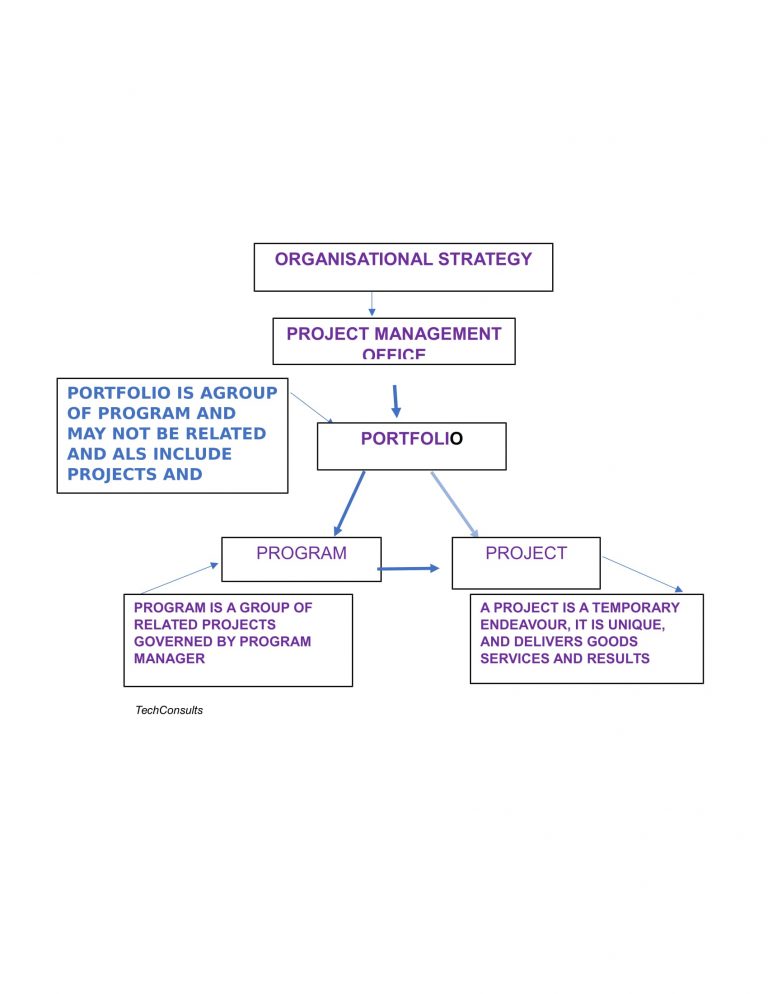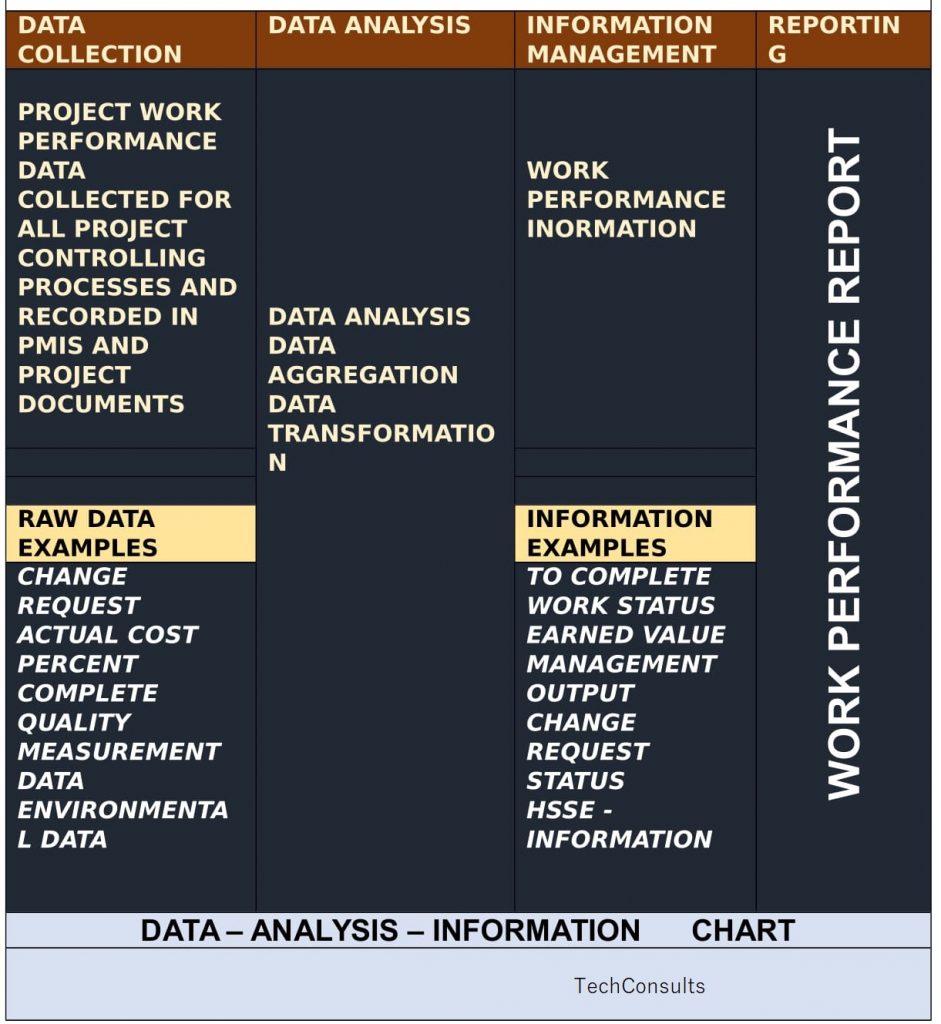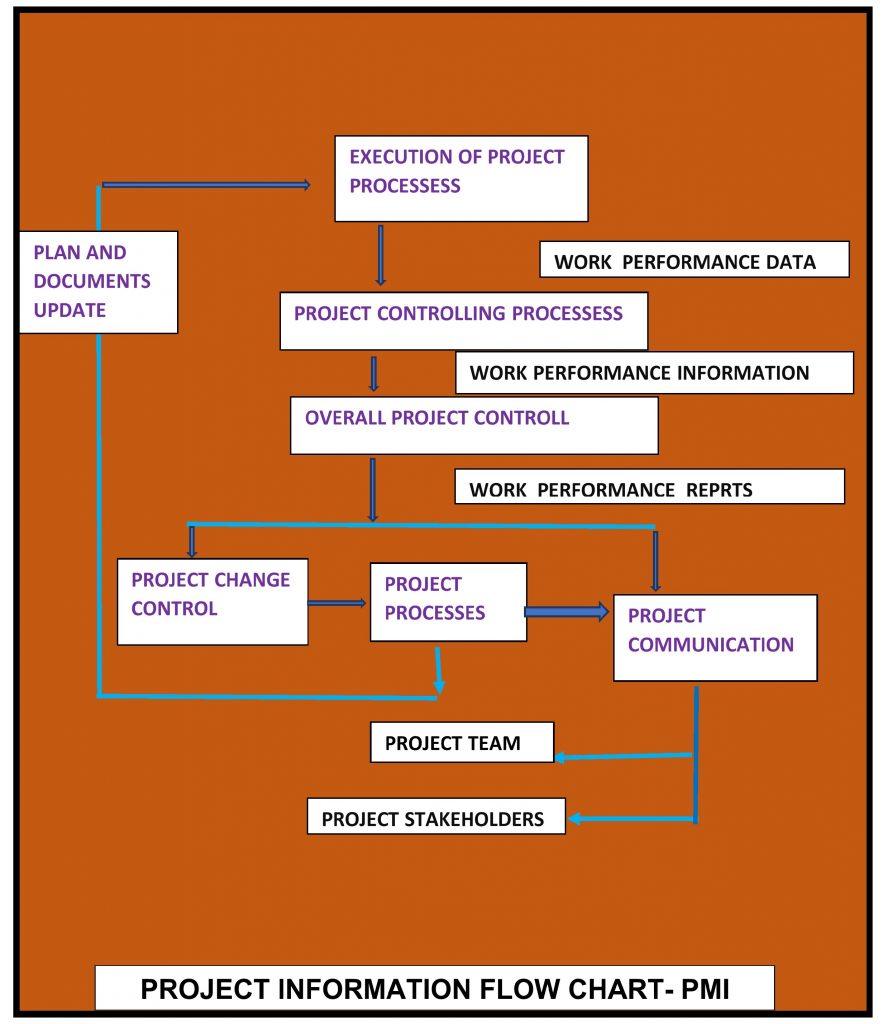
Project Management Framework Essentials 2
Project management Blog 3 SK 6

This write up covers project Management office of the organization which guides the execution units. Progressive elaboration term is explained, and it is used at several stages of the project management. Raw data management and getting the meaningful information out of it, is the other topic discussed in this blog.
Project Management Office (PMO)
Progressive Elaboration
Work Performance Data (WPD)
Work Performance information (WPI)
Work Performance Report (WPR)
Project Management Office (PMO)
Organizations have their ongoing business operations. To maintain the continuity of operation, as required per business needs, the necessary changes are taken up to compete the market and as such, this need give rise to some advancement /modification, by taking up small medium or big projects to fulfill the business needs. Depending upon the magnitude of the needs the projects are managed by project manager, program manager and portfolio manager in the Project Management Office, (PMO) of the organization.

Controlling and Directive roles for alignment of the business strategy PMO is a driving force behind Project Management, Program management, Portfolio Management and other organizational management practices. The Project Management, Program management, Portfolio Management and other management units have the governance directions for units, but PMO works beyond this by its Supportive with project operations.
PMO co ordinates different projects of organization. It creates / develop knowledge base of lessons learnt, the best practices in use, procedures and policies, standards, and shares with all project managers. It trains the people, provide necessary tools and techniques, audits and inspect, monitors, guides information management system and communication of the projects. It acts as a central unit for project execution and controls so that the project activities are aligned to project needs and all projects work on same guidelines and specifications etcetera.
In its supportive role, the PMO apprises the project managers and their teams about all support measures required (from inside and outside environment) so that PM is aware of necessary guidance to align the project to organization’s needs. PMO role is of low status and purpose is to facilitate and support the project as asked.
In controlling role, the PMO starts exercising control on the activities of the project. Suggest necessary need-based guidance, tools and techniques. The role of PMO as such becomes prominent
and it therefore monitors the situation of the project closely. It is middle level role of PMO.
In directing role PMO is much involved in the project management processes and therefore it is responsible for the project outcome also.

Progressive Elaboration
(progressive- gradually advancing in stage; Elaboration-addition of extra detail and data).
It is well known that there are many knowns and unknowns in the management of projects. As such some assumptions are taken into consideration for planning purpose in the finalization of management plans. As the project progresses, the plan is modified after considering necessary changes in the assumption
The plan is constantly changed as per finding of the management team. The progressive elaboration, as per dictionary meaning is an important action/step in project planning for upgrading the plan to expectable extent.
According to PMBOK Guide PMI 6th edition;
Progressive elaboration involves continuously improving and detailing a plan as more detailed and specific information and more accurate estimates become available. Progressive elaboration allows a project management team to define work and manage it to a greater level of detail as the project evolves.
Two forms of Progressive Elaboration
The PMBOK® Guide, 6th Edition mentions two forms of Progressive Elaboration
– Rolling Wave Planning
– Prototypes
Rolling Wave Planning
Rolling Wave Planning is a process of project planning in which the details of activities done later are not clear and work is planned based on some assumptions. As the project continues the requirements becomes clear and project team get/gather information about the assumption made and modify the project plan accordingly to the execution requirements. May or may not be repetitions.
Prototypes
It is more a Project Scope Management knowledge area matter. Prototype means-a first or preliminary version of a device or vehicle from which other forms are developed. In the project scope management process the requirements are assessed and to get early feedback on their structural functioning, of the planned structure a prototype of the structure is prepared, either physically or electronically to assess the performance of structure/device and the feedback so obtained is used for the evaluation of generated idea. (Prototype analysis in the form of working model and is a step from formalization to evaluation of an idea.)

Prototype helps in decision making- weather to start a project or not, after assessing the prototype output.
It helps in finalization of practicable specifications in place of theoretical specifications for the device/product.
The quality assessment of prototype is based on precision, functionality a and improvisation.
Project Management Data and Information Flow
Data – information (such as measurements or statistics) used as a basis for reasoning, discussion, decisions, mentoring, alignment calculation, etcetera.
Data is the basic information source collected throughout the execution of processes of the project
This raw data which needs to be taken carefully, is then analyzed qualitatively, aggregated and transformed into information which is used for reporting purposes. Raw data management is a very important aspect as all the information depends on it. There is technological advancement these days and data can be electronically observed and stored in dataloggers from where real time data transmission can be done to storage device. The automatic data recording is very reliable and given preference over manual data recording.
The raw data is recorded for example in following operations:
Weather station data
Batching plant operation data
Drilling and grouting data
Quality control measurements
Earned value management data
Progress data
And others
The detail of data- information -flow is shown below in the chart as an example.

The complete data – information flow – usage, is as below:
The raw data is collected during project process operations manually or electronically. The quality of data collection is very important to seek meaningful information. The data collection is managed manually and electronically, and it is called work performance data (WPD). The good practice is that it should be collected with automatic real time data collection, logging and transportation to the central server for further analysis.
The data analysis is done in project context and accordingly it is aggregated for transformation process. The transformed data is used for getting work performance information (WPI).
The meaningful information is used for generating work performance reports (WPR). (WPR are high level reports, progress reports, financial reports, report on change management, stakeholder mange met, risk management, HSSE report, business reports for assessing the alignment of ongoing projects and others).
The WPR have important role to play in project management and these reports are passed to change control units / boards and to communication units. The communication units compose the reports for the stakeholders and the project team.
Any changes approved based on these reports are informed to process control units and further to project team and the stakeholders.
The desired and approved changes in process control are documented for necessary changes in project plans. The revised project plans are then used for further project execution processes.
The flow diagram below has the contents suggested in PMBOK guide of PMI

